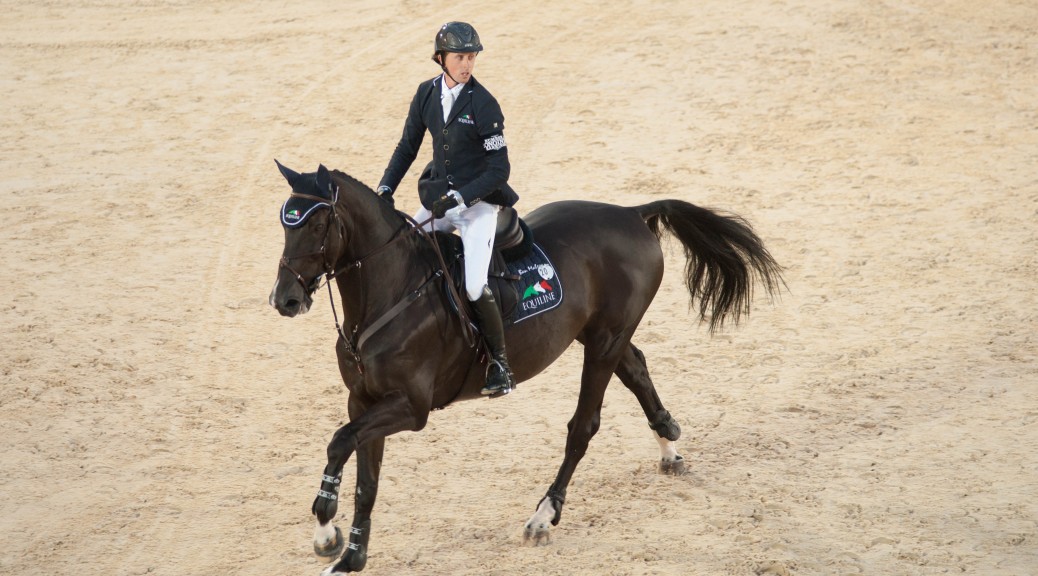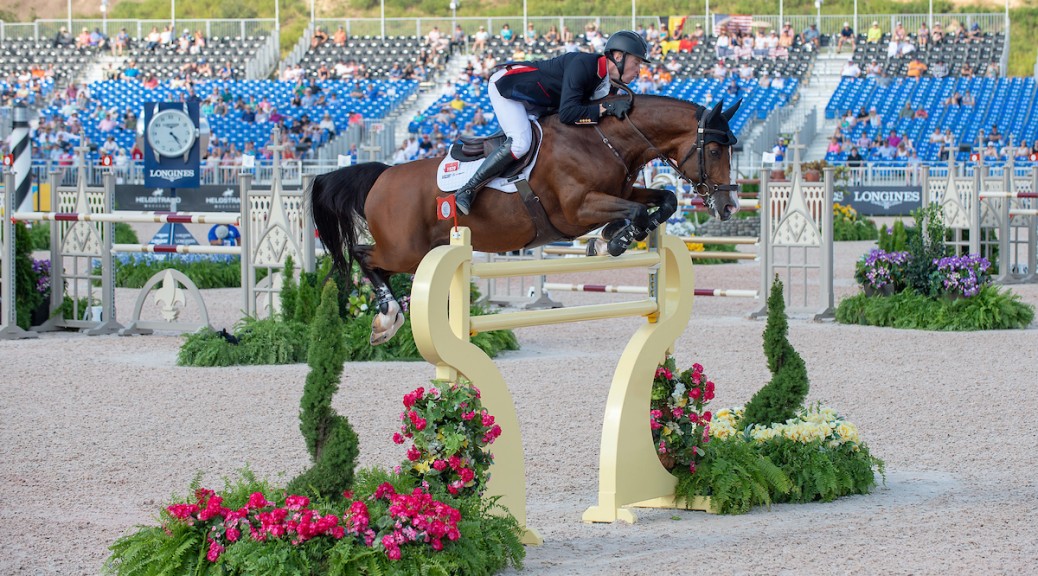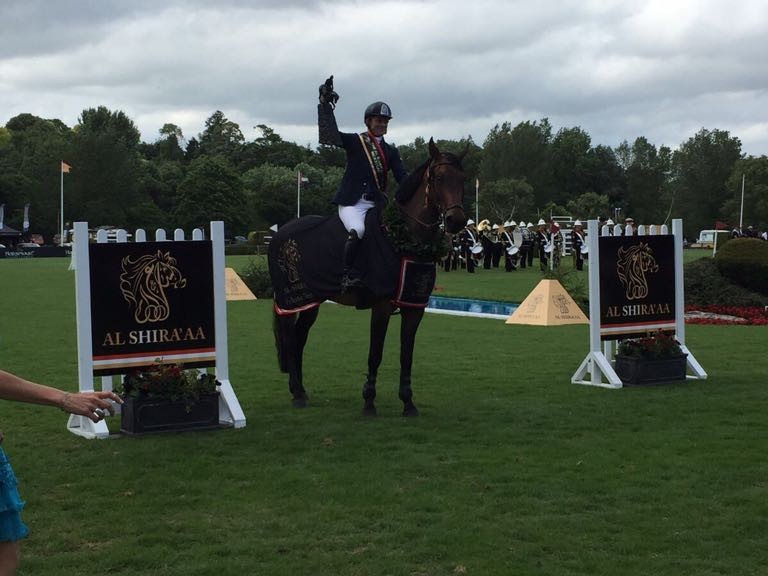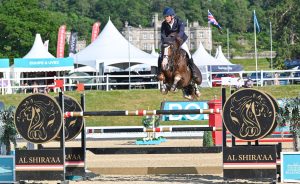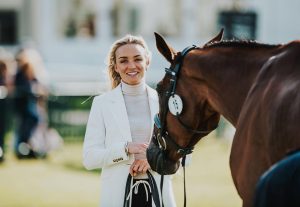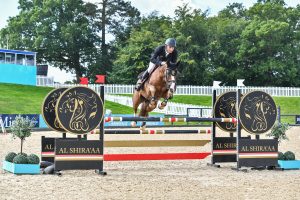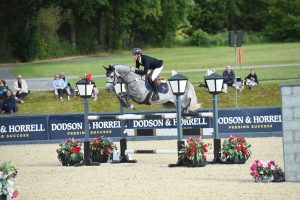The Horse Scout team catches up with Ben Maher at the Longines Global Champions Playoffs in Prague this weekend.
Ben Maher has had a cracking season in the Longines Global Champions Series. After winning three Grand Prix, he was crowned as the overall winner of the LGCT after winning Rome in September. His horse, Explosion W is just nine years old. The seemingly unstoppable pair went on to Doha, the final leg of the Series to win both the Grand Prix and captain his team- the London Knights to another victory in the Longines Global Champions League.
The Global Champions League has really taken off. As team Manager of the London Knight’s, what has been the strategy behind your success for most of the season?
A lot of thought and planning goes into it. We will have a meeting in January to find out what horses everyone has available and work out where to aim those horses and what everyone’s commitments are. So it’s a 90% plan for the first half of the season. There’s a text group and most of the time it stays serious but the guys sometimes fool around a bit. We have a very strong team spirit.
This year I’ve been lucky, there has been a very strong team bond and they have all taken it very seriously and that’s why we’ve managed to be so successful.
What is the significance of the Global Champions Series to the sport and how has it changed it?
It has been great for the sport. We ride every weekend for 100,000 euros to the winner. It was only five years ago that we were riding for 20,000 and thought that was a big weekend. It’s pushed the level of prize money monumentally. I never thought I would see prize money come to our sport this fast.
With that, the horse values have increased. It’s brought more sponsors in and hopefully, there will be TV right from big broadcasters. Maybe, in the end, we can get it back on mainstream TV because it is a great sport. There are lots of kids who have ponies or dream of having ponies. They have a connection with what we do. Like people who play tennis at the weekend, love watching Andy Murray. I Hope that within my career it can come back to what it was because I really believe it’s a great sport to watch.
The GCT and the GCL are continually trying to improve and grow the sport. It’s brought some colour to the sport. We’ve been very lucky to ride in these unique venues and now fans can actually follow a team and we have team colours to make it stand out. Slowly it’s building momentum and I really think that in ten years time, it will be huge.
Does the attractive prize fund detract you from competing at other significant competitions and making team appearance?
Obviously, the prize money is increasingly growing in the GCT but it’s not growing comparatively at other competitions. I’m still committed to my country and supportive of the Nations Cup Series and the Championships. My decision not to be available for Championships was based on the fact I have a younger team of horses and Championships are a lot harder on a horse than one Grand Prix on a Global Champions Tour so it was in the best interests for my horses’ welfare.
We still have not qualified for the Tokyo Olympics, so you think there is a chance we may not get there?
We have two chances next year at Rotterdam in the European Championships and then Barcelona for the Nations Cup Final and I will do my best to make that happen.
I will never forget riding for my life in Aachen to qualify for the Rio Olympics. It was harder getting to Rio than it was in Rio and I never want to get to that point again. It’s a sport where we are always moving, some people who may not have helped to qualify still make it on to an Olympic team because they have the right horse at the right time and you have to have that in consideration. I also have owners that own my horses and it’s not always my decision.
How do you think it will grow the sport?
The GCT and GCL, runs at a slightly higher pace so that keeps the interest. Rather than 40 horses with riders all dressed the same, I agree it can be like watching paint dry- like Formula 1. Where the sport is interesting is looking at the tactics, the training and what goes on behind the scenes before those 60 seconds we spend in the ring. I think this is how we can really draw the audience into what we do and then they can bond with the horses as we do ourselves.
It looks like an incredible life from the outside but what is the reality?
I’m incredibly lucky to do the sport that I love and enjoy. But I’ve been on the road 50 weeks this year. I barely know what home is. I’ve also had the best season of my career and I wouldn’t change it for the world. We lose more often than we win and I just try to enjoy it as much as I can.
Whilst you are now winning big, the overheads must be enormous?
The expenses are huge. It’s travel for both horse and rider and we are living in hotels most of the time. There are 40 horses within our team with 20 members of staff, planes, trucks. The reality is that the prize money a horse can win now and the value of the horses, it’s now in keeping with what it costs to run a horse.
With these horses, there is no expense spared. They are treated like high-level athletes. They are better looked after than I am. They live in the Four Seasons hotel lifestyle every single day. They have physios, specialist care and in many cases have one groom per horse. They are the athlete and that is how we take care of them. Thankfully the sport has now developed enough to help make it financially viable for investors and owners to be part of the sport
Highlight of your career
Competing at the Olympic Games in London where we won team gold. It’s a moment that won’t be repeated in my lifetime at a home game. I would like to go to another Olympics and the dream is to win both a team and an individual gold medal. A double gold would be the ultimate!
Do you think we could win a medal at the next Olympics?
I think anything is possible. This year I didn’t think it would be possible to win the Global Champions Tour Final on two young horses.
What do you think of the state of British showjumping at the moment?
We have a lot of good young riders in the UK but I don’t think it’s a sport where riding is just enough anymore. I think you have to be a very rounded person and you have to be able to communicate with sponsors, owners. I think it’s looking bright, I believe We are just a few years off being very strong. Myself and Scott have had a very good year and I hope we can be a part of that and lead the way for young riders like Emily Moffit, Jack Whitaker, and Harry Charles but we don’t have a lot of time before the next Olympics so we need to accelerate and get things moving quickly.
https://www.gcglobalchampions.com

